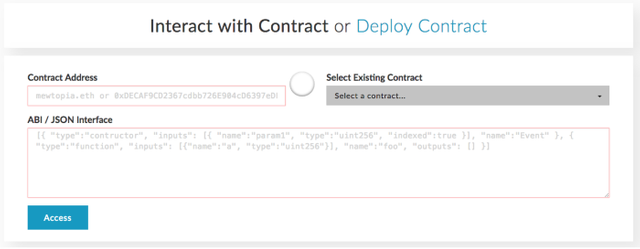ERC223: A new standard ?
Written by Jeremie Joncas

Last January, due to a massive load of transactions, the Ethereum Blockchain had an unprecedented amount of pending transactions resulting in transfer delays. This is only one of the few disadvantages found on the Ethereum blockchain. Consequently, many competitors are entering this huge segment of the Blockchain with different value proposition and claiming to fixe the issues of the Ethereum smart-contracts.
Cardano, EOS, Lisk... How many decentralized network projects can you name aiming to compete with the leading creator of smart-contracts, Ethereum led by the famous and brilliant genius Vitalik Buterin? All claim to have the key to solve the difficulties linked with creating smart-contracts. However, no one has yet delivered such a powerful working tool.
Currently creating a smart contract on the Ethereum blockchain is not difficult. If you want basic features, one will just need to copy paste a protocol that is already proposed by the network and change some basic features like pre-sale schedule and number of tokens. But if a tailored made token is needed to fit the specifics of your project, a blockchain expert is highly needed.
In fact, creating smart-contracts on the Ethereum blockchain is not for everyone. You need strong knowledge of coding in Solidity language. Just 500 experts are available right now. And the demand is growing everyday. Most of full-stack and back-end developers do not know about the coding language. Many are not even interested about the Blockchain Technology.
The result: we are currently left with a token that is difficult to code and which needs a lot of improvement to be 100% functional and user friendly.
But things are about to change...
Few months ago developers have built a new standard proposition, the ERC223.https://github.com/Dexaran/ERC223Token
The purpose of the new ERC223 is to decrease the transfer fees (gas), increase the transfer speed and block the transfer of tokens sent to a different chain address, making it impossible to loose sent tokens on some other blockchains.
Currently, 99% of ICO on Ethereum use the famous ERC-20 token. The following ERC-223 enhancements may well become the norm in the months to come.
What is “ERC20"?
It is a standard built by the Ethereum Foundation. To be qualified as ERC20 it has to follow certain norms and specifications. It indicates the functions that a token contract must manage to belong to it. No matter the content of its code, a token is accepted as an ERC20 when its contract meets these specifications.
This consensus around ERC20 allows all projects to deploy their tokens with some guarantees of results but also a wallet compatibility with all the other ERC20 Ethereum tokens. MyEtherWallet being the most popular so far: http://myetherwallet.com/
Consequently, all ERC20 tokens can be stored on the same address.
Limitations of the current standard
On the blockchain everything age fast... Despite its overwhelming success, the standard has to be modified to cope with future needs and evolution. Several situations already pose serious issues:Now it only takes one "Transfer" function to send tokens to a wallet address. But in the case of a transaction between a portfolio address and a smart contract, 2 steps are needed. You must first validate the transaction with the relevant token contract ("approve") and then execute the "transferFrom" function on the receiving contract where you want to deposit your tokens.

By executing directly the "Transfer" function, you may loose your tokens that are trapped on the contract address. Same result if you mistakenly send your tokens to a wrong contract address. It is therefore not possible with ERC20 tokens to reject the transfer of tokens that are unsupported.
Today, hundreds of millions worth of tokens are lost on different chains and Ethereum cannot be taken back.
The ERC223 proposition
The new standard proposition is not only fully compatible with all the applications used by ERC20 tokens (MEW, Etherscan...) but also fixes the current issues while keeping all the avantages of the previous standard.
The main advantages of ERC223 proposition:
-Prevents the loss of tokens due to a sending error.
-Reduces gas costs by 50% when transferring between a wallet and a smart contract (moving from a two-function transaction to a single “Transfer”).
-Simplifies the process of sending tokens to a contract making the Ethereum blockchain less bulky.
Adoption of the new proposition
Most of current tokens are integrating the ERC223 enhancements like Fieldcoin, but still do not make their tokens totally ERC223 for the reason that so far, it is not a standard and many exchanges still are reluctant to accept 100% ERC223 tokens on there trading platforms. Although its benefits are clear, Proposition 223 is not yet officially recognized by Ethereum.
In coming months its popularity may increase. Few other projects have chosen to go 100% ERC223. Here are some examples of tokens that are now totally ERC223:
-MobileGo, a token monetizing esports and developed by GameCredits.
-Coss, on exchange token.
-Followcoin, a copy trade project.
Application of those advantages to Fieldcoin Eco-system
Nevertheless, most tokens have adopted the ERC223 features. This is for example the case of Fieldcoin, the platform dedicated to land exchange and crowdfunding of agricultural projects with an innovative Trade-Back Protocol developed by its founder, Marc Couzic. Those new features are essential for Fieldcoin’s project.
-On its land exchange platform the amount transferred are important. A 50% reduction in gas fees makes the land property acquisition more affordable.
-A loss of token on the chain could be of some high consequences for the buyer. ERC223 cope with this issue.
-Enhanced speed of transaction, means more accurate exchange rates in FIAT currency.
More info at fieldcoin.io
Great news! Though there are many competitors, I'm sure Ethereum is the future, I like Buterin's view and the solutions he offers. And it's glad to see others also work hard to optimize and speed up the network :)
really precise article. I learned a lot of interesting and cognitive. I'm screwed up with you, I'll be glad to reciprocal subscription))